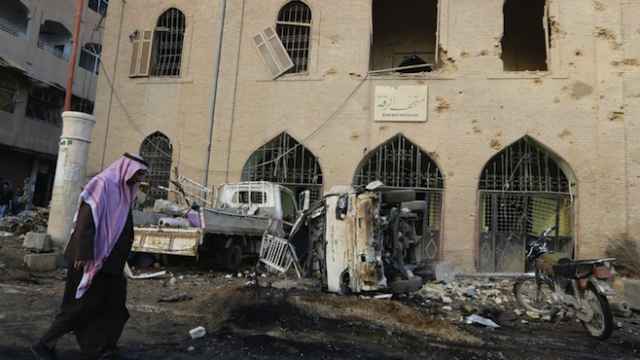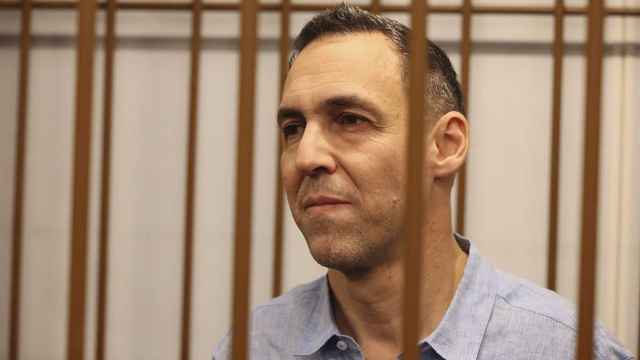Russia is optimistic at the prospect of renewed talks between opposition figures and the Syrian government early next year, Russian Foreign Minister Sergei Lavrov said Tuesday.
Moscow, an ally of the Syrian government, has pushed to restart talks that collapsed in Geneva in February, inviting Syrian Foreign Minister Walid Muallem to visit Moscow after a similar visit by a former Syrian opposition chief in November.
"So far from what we hear from the majority of our interlocutors, both in the opposition and the government of Syria, we can be optimistic that this process [of talks] could at least be tried early next year," Lavrov told France-24 television.
Lavrov said he wanted Syrian opposition groups to agree among themselves on a common approach before setting up direct talks with the Damascus government. He did not specify which opposition groups should take part.
In a separate initiative, the UN mediator for Syria, Staffan de Mistura, has proposed an "action plan" to implement local cease-fires in some regions torn apart by Syria's civil war, with the country's second city Aleppo as a possible starting point.
Syrian President Bashar Assad said in November that the proposal was "worth studying."
"We would be supportive of his efforts," Lavrov said, referring to the De Mistura proposal.
Russia has long backed Assad, including with arms supplies for Syria, but he has become a more important ally for Moscow since the 2011 Arab Spring protests toppled several autocrats in the Middle East, some of whom had close ties with Moscow.
The Syrian conflict began with street protests against longtime Assad family rule and mushroomed into a bloody uprising and civil war, with Islamist insurgents predominant, after state authorities tried to crush the unrest by force.
A Message from The Moscow Times:
Dear readers,
We are facing unprecedented challenges. Russia's Prosecutor General's Office has designated The Moscow Times as an "undesirable" organization, criminalizing our work and putting our staff at risk of prosecution. This follows our earlier unjust labeling as a "foreign agent."
These actions are direct attempts to silence independent journalism in Russia. The authorities claim our work "discredits the decisions of the Russian leadership." We see things differently: we strive to provide accurate, unbiased reporting on Russia.
We, the journalists of The Moscow Times, refuse to be silenced. But to continue our work, we need your help.
Your support, no matter how small, makes a world of difference. If you can, please support us monthly starting from just $2. It's quick to set up, and every contribution makes a significant impact.
By supporting The Moscow Times, you're defending open, independent journalism in the face of repression. Thank you for standing with us.
Remind me later.





